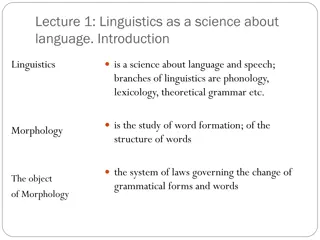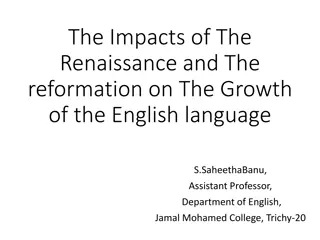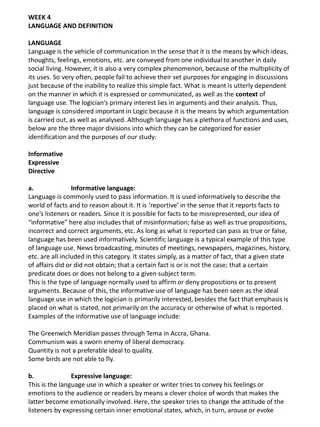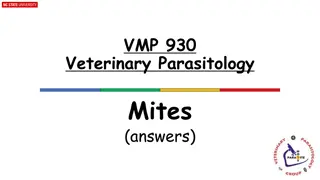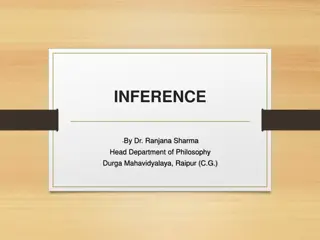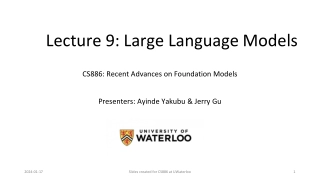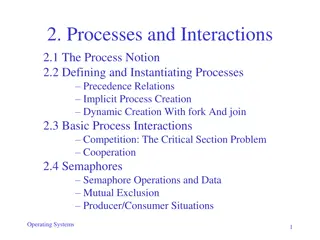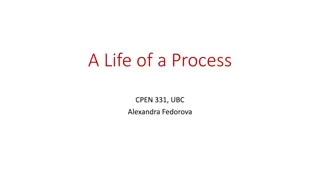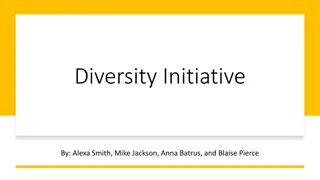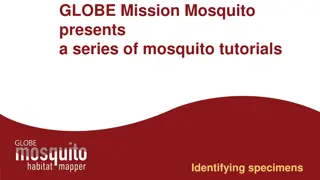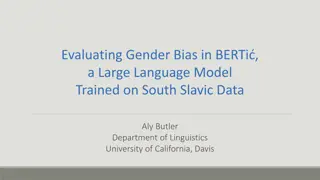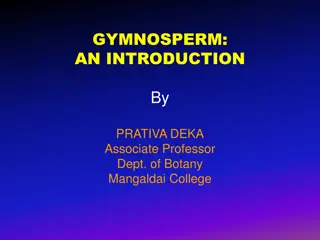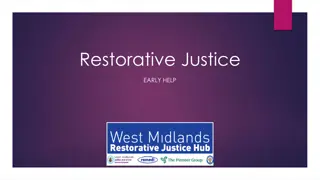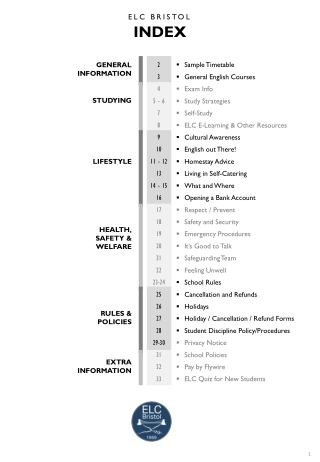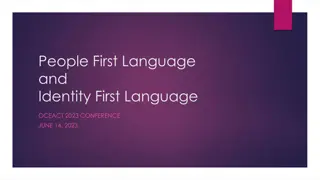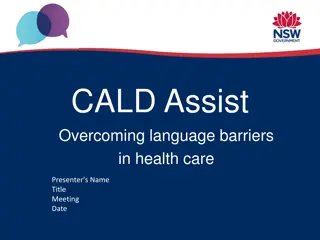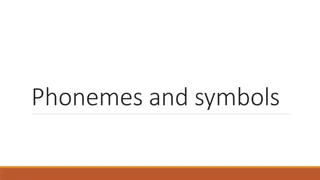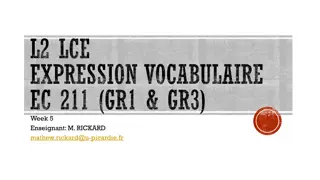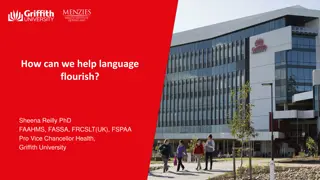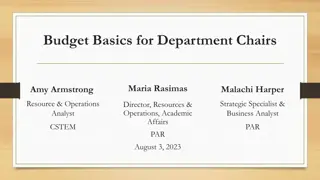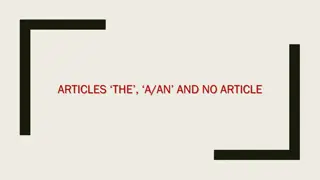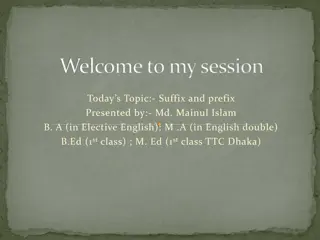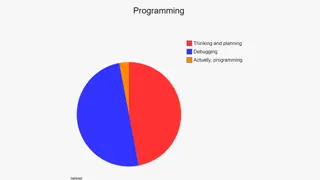Understanding Minor Morphological Processes in English Language
Explore minor morphological processes in the English language, including word-building processes like conversion and clipping. Conversion involves changing a word's part of speech without affixes, while clipping shortens words without altering meaning. Acronyms and abbreviations are also discussed in the context of word formation.
Download Presentation
Please find below an Image/Link to download the presentation.
The content on the website is provided AS IS for your information and personal use only. It may not be sold, licensed, or shared on other websites without obtaining consent from the author. Download presentation by click this link. If you encounter any issues during the download, it is possible that the publisher has removed the file from their server.
Presentation Transcript
Minor morphological processes Morphology of the English language
Minor word-building processes Conversion, Zero derivation / Konverzija, derivacija nultom morfemom Clipping / Skra ivanje Doubling / Udvajanje Back-formation / Povratno izvo enje Blending / Slivanje Phonaesthesia / Fonostezija
Conversion, Zero derivation The morphological process of changing a part of speech without any affix E.g. cash (N) to cash (V), custom (N) to customize (V), room (N) room (V) The zero morpheme isn t an absent one, but one that cannot have its sound expression due to the peculiarities of the language system.
With conversion the whole grammatical paradigm of the word changes Hand (N) Hands Hand s Hands Hand (V) Hands Handing Handed Handed
Two most frequent types of conversion Verbs converted out of nouns denominal verbs E.g. Dust to dust, coat to coat The semantic link between nouns and verbs formed out of them varies a lot. Verbs can mean to remove, to use, to obtain, to supply, to act like. Nouns converted out of verbs deverbal substantives E.g. to drive drive, to walk walk, to help help, to need need, etc. If Verb is Y, N = the act of Y
More examples of conversion Up to up To sing song Breath to breathe Present to present Subject to subject Kitchen-sink , N kitchen-sink, Adj. Etc.
Clipping is a process of shortening a word without changing its meaning or its part of speech, though frequently with the effect of making it stylistically less formal E.g. Telephone phone, autobus bus, airplane- plane, etc. Ever e er, madam ma am, etc. Advertisement ad, laboratory lab, examination exam, hippopotamus hypo, etc. Influenza flu, refrigerator fridge, etc. Types of clipping: Fore-clipping, procope skra ivanje na po etku re i Syncope skra ivanje u sredini re i Back-clipping, apocope - skra ivanje na kraju re i Procope+apocope Acronyms and abbreviations
Acronyms and abbreviations Unlike acronyms, abbreviations are pronounced as sets of separate sounds E.g. BBC, a.m., PC, CD, ASAP, etc. A word coined from initial letters of the words in a name, title or phrase E.g. light amplification by the stimulated emission of radiation laser; Young urban professional yuppie. Acronyms have the status of a word and thus they can have inflectional endings: Laser, lasers, laser s, lasers
Doubling A morphological process of forming a new word by repeating the whole or a part of it. E.g. murmur, bye-bye, tip-top, dilly-dally, zig-zag, hanky-panky, etc.
Back-Formation Formation of words by the deletion of suffixes. The majority of new words created by back-formation are verbs formed out of nouns E.g. a baby-sitter to baby-sit an editor to edit an air-conditioner to air-condition a housekeeper to housekeep a mass-production to mass-produce, etc.
Blending Forming new words by putting together elements of two or more words. The most frequent formula is AB+CD=AD E.g. smoke+fog=smog, Sunday+Monday = elections +entertainment = Words formed by blending are called coinages ( kovanice ).
Phonaesthesia Forming new words on the basis of the sound effect that some consonants (consonant clusters) produce in our consciousness E.g. sizzle, drizzle, whisper, gasp, splash, etc.



